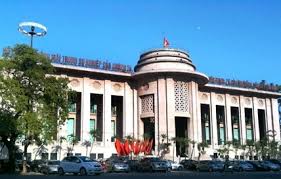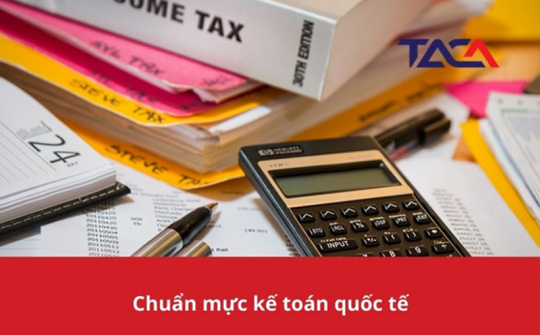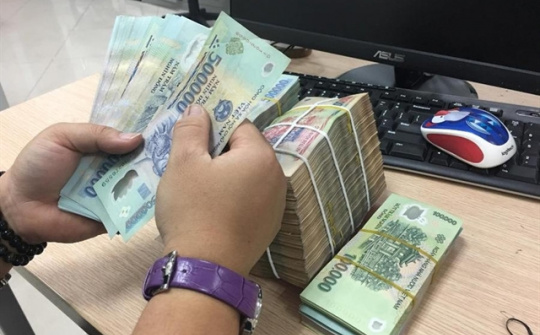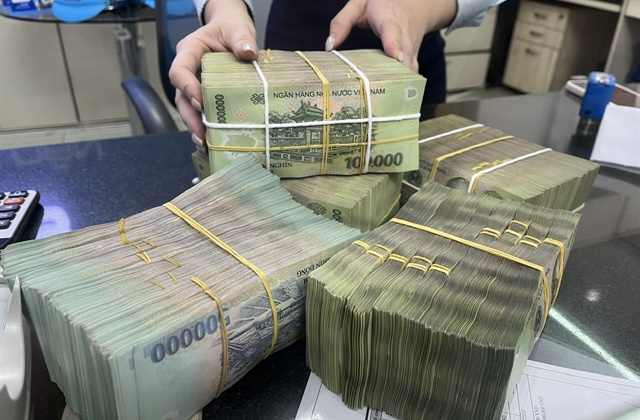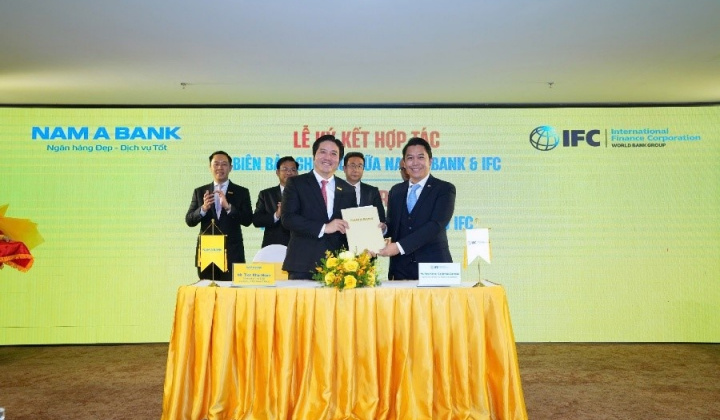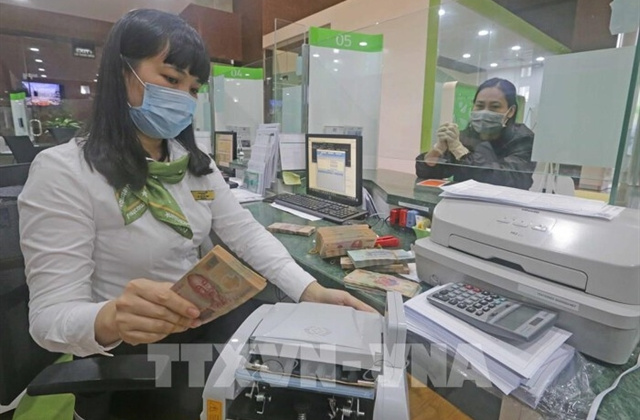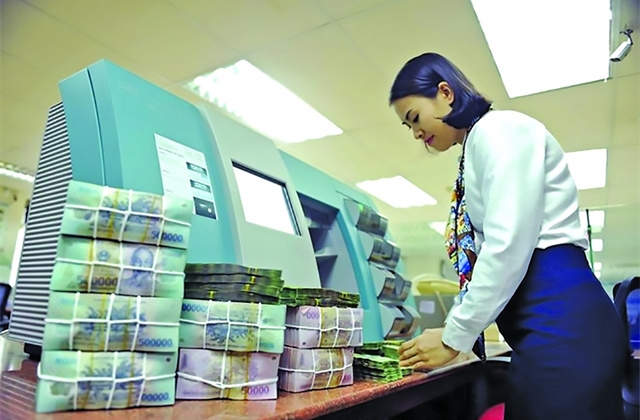The Seminar was held to listen to comments from CIs, helping the drafting agency to complete the Draft Law on CIs amended before submitting it to the National Assembly at the 9th Session of the 15th National Assembly (expected to open in May 2025). The following is a summary of the comments from representatives of CIs presented at this event.

Seminar's view
The legalization of Resolution No. 42/NQ-QH in the Law on Credit Institutions (CIs) 2024 will contribute to unlocking resources from collateral assets (TSBĐ) that have been "frozen" due to prolonged litigation. Banks all affirm their responsibility to comply with the law, but also hope for a clear mechanism to effectively recover (TSBĐ), avoiding damage to both CIs and the people.
Key comments from bank representatives and experts include:
Difficulties in seizing collateral assets:
Banks such as Techcombank emphasize the responsibility to strictly comply with the law, the seizing of collateral assets must be careful, avoiding errors that cause damage and lawsuits.
This cannot be done arbitrarily, only banks are allowed to exercise this right according to the regulations of the State Bank.

Ms. Nguyen Thu Lan, Vice Chairwoman of Techcombank Board of Directors
In the process of seizing, it is necessary to consider humanitarian factors and not affect the rights of weak and elderly borrowers.
"Regarding the fairness and responsibility of credit institutions when seizing assets, we are very aware. Banks are organizations that are licensed to operate and are subject to extremely strict management. People deposit millions of billions of dong in banks, not just a few hundred thousand billion dong, and banks are responsible for managing and paying the principal/interest in full. Therefore, banks are also organizations that are trusted by society and cannot arbitrarily seize assets. When carrying out the seizure, we are extremely careful, because any mistake in this process — from seizing, handling assets, auctioning to recovering money — can lead to serious consequences and lawsuits. If they make a mistake, the bank must take responsibility and still have to pay in full according to regulations. Therefore, only credit institutions are authorized by the State Bank to seize assets; not any organization in society, or in normal civil relations, can carry out this procedure. It must be affirmed that banks cannot do whatever they want" -said Ms. Nguyen Thu Lan, Vice Chairwoman of Techcombank Board of Directors.
Unlocking resources from collateral assets to serve the economy:
Agribank believes that the quick and effective handling of collateral assets is essential to minimize waste of resources, reduce the workload for the court, and promote economic activities.

Ms. Nguyen Tuyet Duong, Member of Agribank Board of Directors
The legalization of Resolution 42 will help banks handle bad debts faster, reduce moral risks and ensure social responsibility.
"Agribank is a very large bank with a nationwide network and total assets currently exceeding VND2.2 million billion. Along with that, the asset resources in bad debts are also very large. The problem is that we must be responsible for clearing and returning these resources to the economy. If we just argue and let a large amount of assets continue to accumulate, it will be a waste.
Why are there still incidents and violations? That is inevitable in any society, but we cannot force the entire banking system to bear the burden because of a minority of violations. Banks have been and are considering every decision very carefully. Whoever makes a mistake will be dealt with by law. Moral risk is one of the risks that banks always take seriously.
Regarding debt collection and handling of secured assets, it is clear that, in principle, if you borrow, you must repay the debt. When a bank has lent money, it is the bank that is more concerned than anyone else to ensure that the bank is able to repay the capital, the money that the bank has received from people's savings. Because the bank mobilizes capital from people, using idle money to lend to others. Regarding social responsibility, the bank has also done a lot.
Currently, there are many cases pending in court, it is clear that large resources are being "frozen", causing waste of time and costs for related units, ministries and branches. If debt collection is handled well, it can reduce the workload for the court and the enforcement agency.
In addition, it is necessary to raise legal awareness. When entering a civil relationship, there must be respect, there cannot be any delay in debt repayment obligations. The bank also has very strict internal procedures, it cannot be done arbitrarily. Because if any risks occur, the bank is the one who suffers the loss - said Ms. Nguyen Tuyet Duong, Member of Agribank Board of Directors.
There needs to be a clear, transparent and appropriate mechanism:
Banks such as Sacombank and HD AMC have emphasized that the current process of handling secured assets through the court is prolonged, causing injustice and damage to banks and borrowers.

Mr. Nguyen Van Trinh, Head of Legal Department of Sacombank
Legalizing the right to seize secured assets will help to be more proactive in debt handling, reduce costs, shorten time, and limit the situation of assets being "frozen" for a long time.
"Ensuring the rights of banks is also ensuring the rights of other entities in credit relations. If assets are frozen or stagnant, it will affect the common interests, not just the banks. Banks do not fight for their own interests but to maintain a fair social relationship, serving both depositors and borrowers. Therefore, the legalization of Resolution 42 is an important opportunity to remove obstacles and create more favorable conditions for banking activities in serving the socio-economy, absolutely not for the purpose of seeking personal interests" - said Mr. Nguyen Van Trinh, Head of Legal Department of Sacombank.
Ensuring compliance with the law and procedures:
Opinions all emphasize that this right must be exercised within the legal framework, ensuring transparency, fairness and responsibility of the bank.

Mr. Nguyen Duc Bien, Vice Chairman of HD AMC Board of Directors
"When the Resolution 42 expires, the recovery of collateral through the court or enforcement agency takes more time due to the litigation process, as well as the large number of cases accepted through the court. Therefore, if the bank is authorized to seize collateral, it will be more proactive in handling bad debt, shortening the time, reducing debt collection costs, reducing overdue debt, and the borrower can also retain a portion of capital to continue production and business. If waiting for enforcement, interest will still arise. In fact, in many cases, by the time the settlement is completed, the total debt has exceeded the value of the collateral" -said Mr. Nguyen Duc Bien, Vice Chairman of HD AMC Board of Directors.
In general, legalizing Resolution No. 42 in the Law on Credit Institutions 2024 is considered an important step forward to improve the efficiency of bad debt handling, reduce the burden on the court, unlock social resources, and at the same time create more favorable conditions for banking activities and promote the country's economic development. Delegates agreed that the right to seize collateral needs to be clearly regulated and under the law, to balance the interests of banks, borrowers and society.
VNBA News


